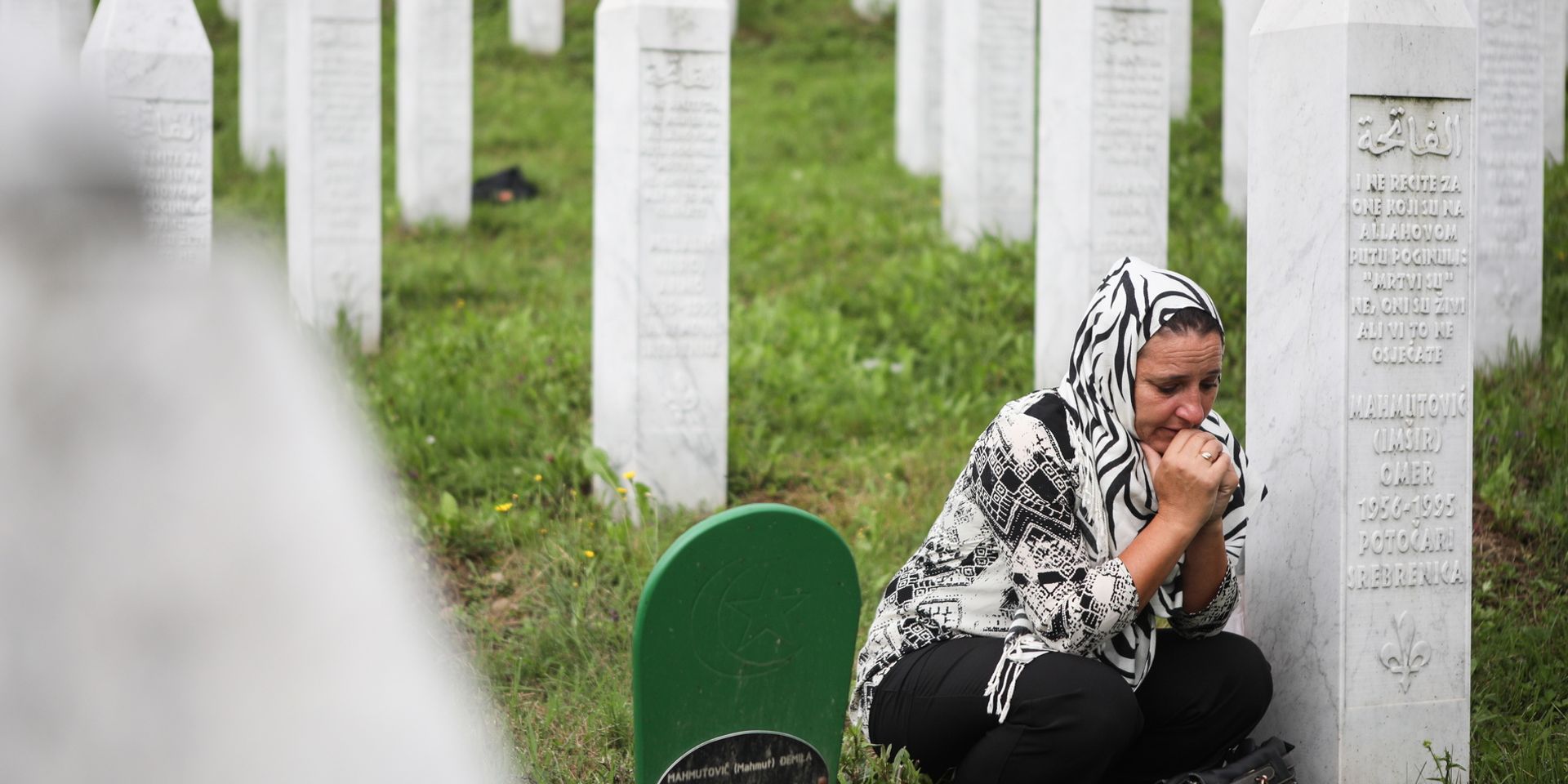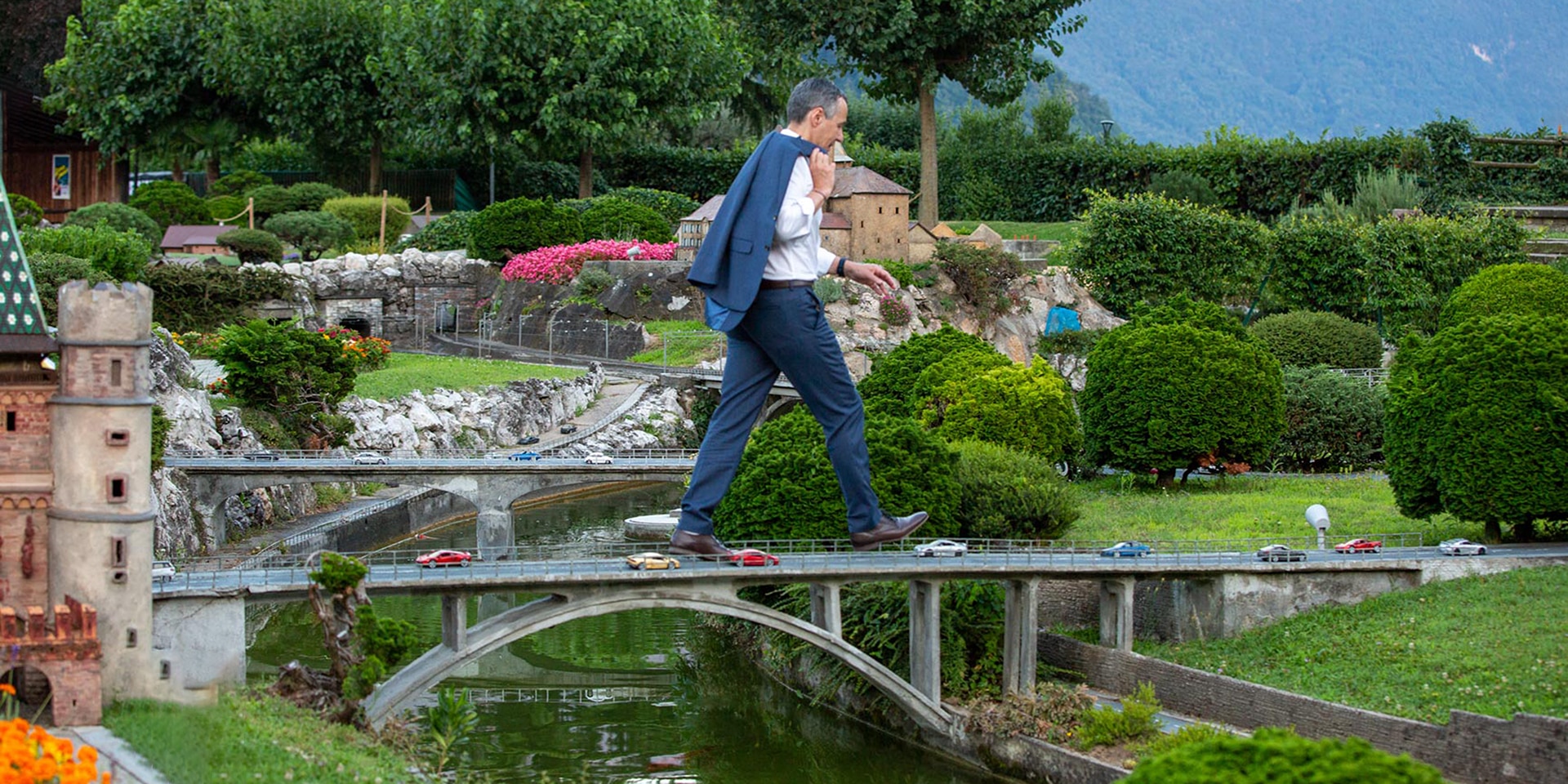Making sense of COVID-19
In this guest article for the NZZ, Federal Councillor Ignazio Cassis takes his own look back at an extraordinary year – a whirlwind 12 months that left little time for reflection amid ever-changing case numbers. Cassis addresses a number of questions. Who decides how much a human life is worth? How important are open borders? And how will we make sense of it all whenever normality returns?
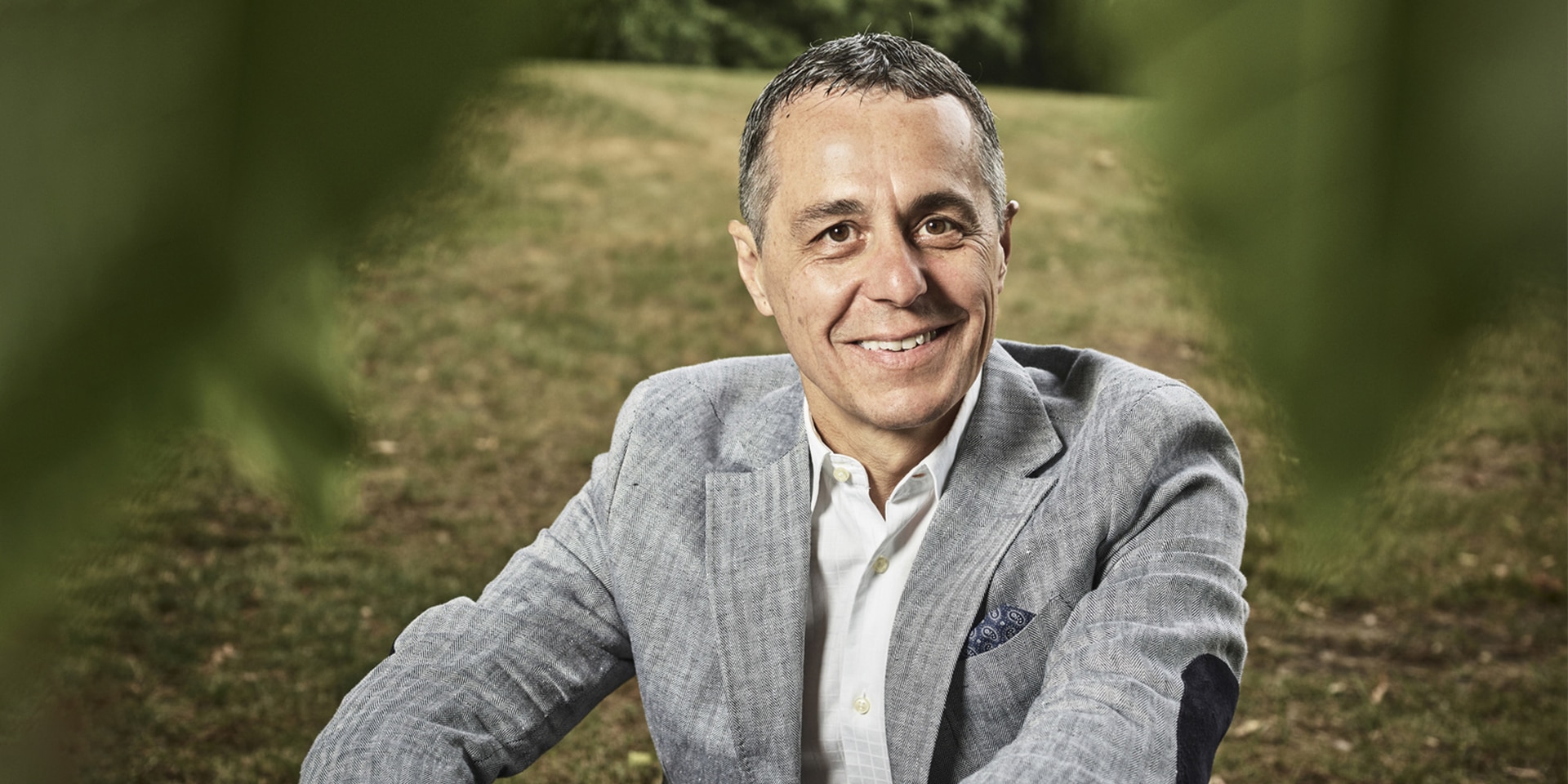
Making sense of COVID-19 after one year. How does the pandemic not only affect people's heath, but the economy and society? Federal Councillor Ignazio Cassis takes a very personal look back at an intense, tumultuous period. © Keystone
There is one specific piece of footage that I remember: the aerial view of a building site – a veritable hive of activity, showing cranes, diggers and thousands of people. Not only was this a time-lapse recording; it was also a frame-by-frame portrayal of an entire generation. Condensing COVID-19 into a single shot is almost impossible. But if there is one image in my mind that documents the beginning of this crisis like no other, it is that of a field hospital being built from scratch in Wuhan.
At a time when the novel virus was still an obscure respiratory disease and, more importantly, someone else's problem, the Chinese authorities were building something of a magnitude that we in Europe could barely fathom. Public healthcare construction projects here in Switzerland can take as long as 30 years to complete – even when no objections are lodged. In Asia, we see business capitals going into lockdown within a few hours, with 30 million people quarantined and new buildings built in the blink of an eye. I recall how fascinated I was by these pictures. Purely in terms of the technical feat, it goes without saying.
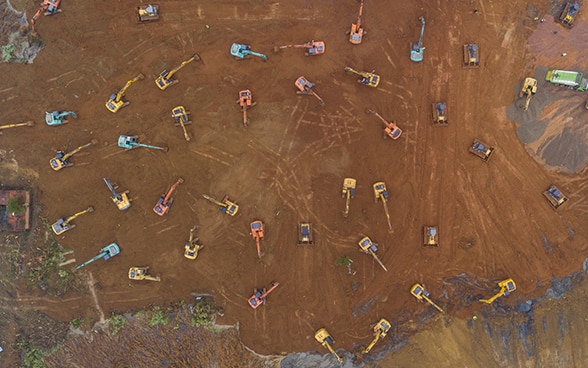
The risk of crying wolf
What began as curiosity for something far away soon cut deeper, when Dr Pietro Antonini reported Switzerland's first coronavirus case on 25 February at the Moncucco hospital in Lugano. This was in Ticino. In my city. Years ago, I helped to prepare pandemic contingency plans during the SARS and bird flu outbreaks in my capacity as cantonal medical officer. Switzerland was ready. Yet we humans have two traits: we are quick to forget and we struggle to take responsibility. There is always the risk of crying wolf.
If you jump hastily and the consequences of the outbreak turn out to be minimal, people will accuse you of having overreacted. Do too little, and they will say that you have been caught napping. You have little to gain and much to lose from making decisions when no one really knows how things will pan out. The process from thinking about the possible course of action to taking actual measures not only takes time (which, of course, a crisis rarely gives you). It also requires courage – courage to sound the alarm without already knowing all the facts.
Are we doing the right thing?
Predefined processes are a help when the picture is unclear. The Federal Council knew that it had to keep calm and do exactly what the pandemic plans said. And just as we had written in the plans, the public initially became anxious. People were concerned about something they otherwise take for granted – their health. I vividly remember those early days, when the situation and the mood music almost changed from hour to hour – not least for us in the Federal Council. We were flying blind, preoccupied by the question of when and if to bail out.
It was absurd. Like a running a race without warming up – and more importantly, not knowing whether the race was a marathon or a sprint. Governing Switzerland by emergency decree all of a sudden was a new and scarcely believable experience. It is the first time that the Swiss government has had to enact emergency powers since the Second World War. Never has so much money been put in to managing a crisis. We spent sleepless nights asking ourselves the agonising question: are we doing the right thing?
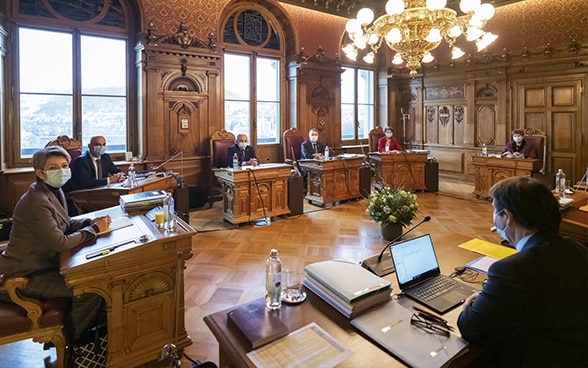
Time and distance will bring clarity
The history books say you must save women and children first in an emergency, but we focused on the elderly and chronically sick. Is that the right or wrong thing to do? Who determines the financial value of a human life? The Federal Council has the first and final say under emergency law. Shouldering such a heavy responsibility requires thought and time – even in a crisis. Yet the sheer speed of events prevents us from taking fundamental ethical and social issues into account – a void that creates potential for conflict.
The Federal Council stands ready to provide CHF 40 billion in relief. This is equal to 40% of Switzerland's gross debt. Spending such a massive amount of borrowed money saddles future generations with a legacy of debt, raising the spectre of an intergenerational conflict that almost no one dare talk about because the prospect is so unpleasant. Only when we look back will know whether we did the right thing.
Pitting the economy against health
Society currently has no time to address imponderables such as these. More pertinently, it lacks the requisite distance to do so. People prefer to keep their counsel in these times for fear of choosing the 'wrong' side. Advocating a public health approach means that you are anti-business. Prioritise saving the economy, and you have people's lives on your conscience. Thinking in such black-and-white terms is facile and a symptom of our economic prosperity. Poor nations are immune from this polemic for simple financial reasons. Neither health nor prosperity are a given in many countries, where death is often part of everyday life and people are all too aware of the transient nature of human existence.
Switzerland has been spared the dichotomy for a long time. But this is because Swiss prosperity is based on our economic strength as a country. If you pit the economy against health, you ignore the fact that income is key in determining people's health. The economy and health are two sides of the same coin. Any contradiction to this is contrived. Playing one off against the other is futile and damaging. Healthy people who are in work and have money are necessary for any society to exist. Prosperity is not the enemy of health, but its foundation.
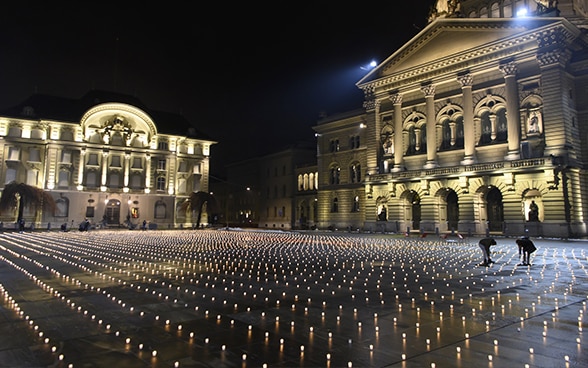
Close borders! Save lives!
I continue to be frustrated at all the moralising around COVID-19. It is tiring and unrealistic to think that there is a categorical right or wrong way to manage the crisis. If the pandemic has taught us one thing, it is that agile trial and error is imperfect but certainly better than any centralist doctrine that pits one cornerstone of our prosperity against the other. After all, Switzerland has no automatic right to be wealthy.
Above all, we owe our prosperity and our modern health system to a strong economy, not least in exports. Just at a time when globalisation is under pressure and national boundaries are regaining importance, calls for Switzerland to pull up the drawbridge completely are also getting louder. COVID-19 has highlighted our ambivalent relationship with our own national identity and brought social issues of recent years into the political and media spotlight.
Border regions – where people live and work
The argument about whether we closed our borders was superfluous from the outset, because the pandemic was going to hit Switzerland regardless. It was unrealistic wishful thinking – and symptomatic of our fear – to believe that we could stop the virus at the border. However, the debate showed us how much we underestimate the significance of border regions for the people who live there. Not only do borders demarcate our identity, but they also act as a link between countries and cultures and are the place where thousands of people live and work. For example, it was thanks not least to Italian and French cross-border commuters that the health systems of Ticino and Geneva carried on functioning.
It was striking to see how symbolic this link was in Konstanz and Kreuzlingen. When a border fence was erected overnight between the two cities, the emotional outpouring and widespread outcry that followed underlined how deeply Europe's past is ingrained in our collective memory. Border regions are not a hindrance but conducive to people living, loving and working. Closing Switzerland's borders completely was never on the agenda. Border closures were the nomenclature that we used, but in truth our borders remained open to goods and partially open to people.
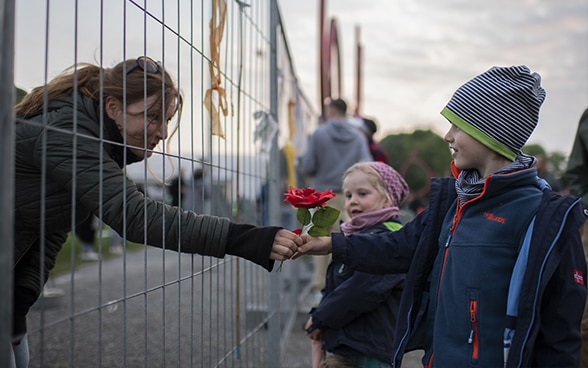
A shared love of cantonal autonomy
As the citizen of a border canton, I am deeply aware of our interconnectedness. It was precisely during the COVID-19 pandemic that I was continually reminded of this unique cultural asset on my weekly trips to Bern. We in Ticino experienced a crisis that only extended as far as the southern portal of the Gotthard tunnel. The contrast was palpable whenever I travelled to the capital. In my view, COVID-19 has thrown Switzerland's geographical and cultural traits into stark relief – in good and bad ways. The fact that Milan was the epicentre of the pandemic in Europe and that Ticino was hit much earlier and with far greater force than the rest of Switzerland made for a totally different experience.
The pandemic has shown emphatically how diverse Switzerland really is. It has revealed not only our differences, but also our shared love of cantonal autonomy. Federalism is no historical catchword but the reflection of a cultural and geographical reality. It has always translated into an ongoing balancing act between Confederation and cantons.
Perseverance pays off
Power is addictive – at every level. Federalism, its antidote, compels us to be humble, tolerant and accepting of different points of view. The arduous negotiations, the interminable debates and the clear separation of powers are precisely what keep our country together. But particularly in times of crisis, the life blood of federalism is community spirit – a virtue that has been lost somewhat amid the noisy wrangling over COVID-19 measures. We all did our part to combat the terrible virus in spring 2020. Now the longer the discussion continues, the shriller the tone becomes. Some want the measures to be stricter, while others long for them to be lifted. Instead of listening to each other, we have resorted to shouting. Instead of engaging with each other, we seek confrontation.
Now is just the time when we would do well to reflect on our federal values. Because perseverance pays off. The vaccines and increased testing and contract tracing capacity offer a bright ray of hope. But we must be willing to continue steadily along the path together. Precisely at the moment at which optimism is blooming like the first spring colours, the third wave threatens a return to winter. It is up to us to keep the cold out. Let us work together to regain the freedoms we crave.
This guest article appeared in the NZZ on 6 April 2021.


